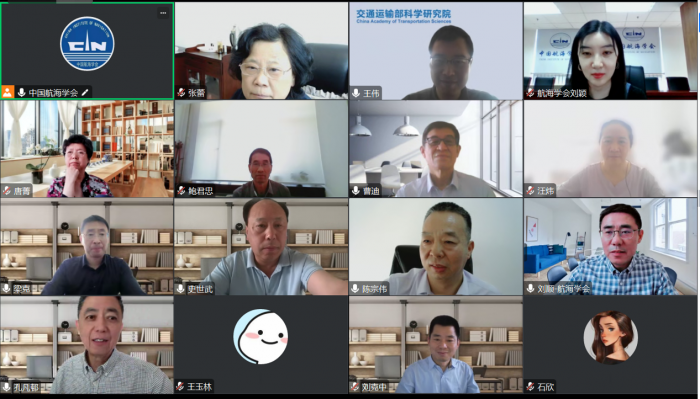On May 23, the Standardization Committee of China Institute of Navigation(CIN) (hereinafter referred to as the “Standardization Committee”) held its first working meeting for 2023. Shi Shiwu, Executive Deputy Director of the Standardization Committee, Chen Zongwei, Deputy Director of the Standardization Committee, Liu Shun, and 15 members of the Standardization Committee attended the meeting. The meeting was chaired by Liu Ying, Director of the Science and Technology Service Department of the institute.
At the meeting, Deputy Director Liu Shun reported on the tasks of the 2023 group standard work of the institute and the completion status up to now, focusing on introducing aspects such as the standard award setting and expanding the expert team of the standard committee. Shi Xin, a senior engineer from the Science Research Institute of the Ministry of Transport, who assisted in the work of the institute’s group logo, introduced the preliminary review of 45 group logos collected by the institute in the first batch of 2023. Meanwhile, the attending committee members approved 38 of them in principle. Deputy Director Chen Zongwei promoted and implemented the spirit and requirements of the transportation standardization strategy policy training meeting organized by the Ministry of Transport.
Finally, Executive Vice Director Shi Shiwu made a summary of the meeting and proposed three suggestions: firstly, further improve the standardization system of the maritime industry, strengthen the development of new technologies, methods, and product standards, and promote standard development, technological innovation, and industrial coordinated development; secondly, play the main role of shipping enterprises and institutions in standards, encourage application units to adopt international standards and advanced domestic standards, align with the international standards, and enhance China’s voice in the international standard system; thirdly, improve the standard application system, give the priority to supporting the standard projects involving major science and technology projects, and encourage enterprises, scientific research institutions, maritime colleges and other institutions to develop the innovative standards in key areas such as the smart port, smart shipping, water safety, energy conservation and carbon reduction, and pollution prevention around major national strategies and industry characteristics.

